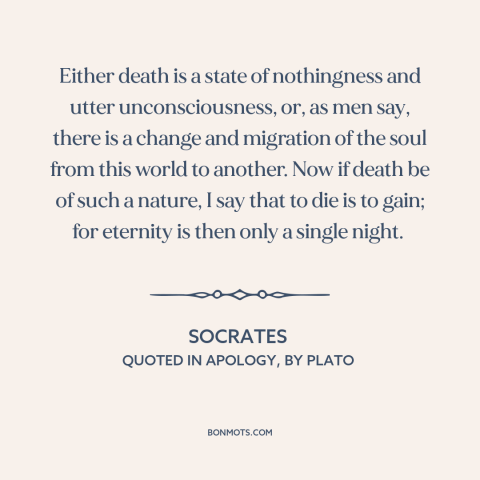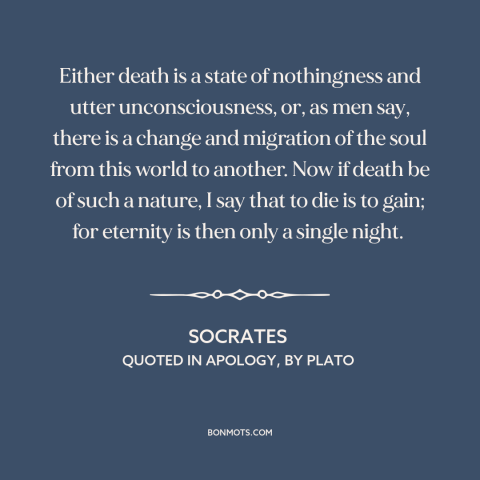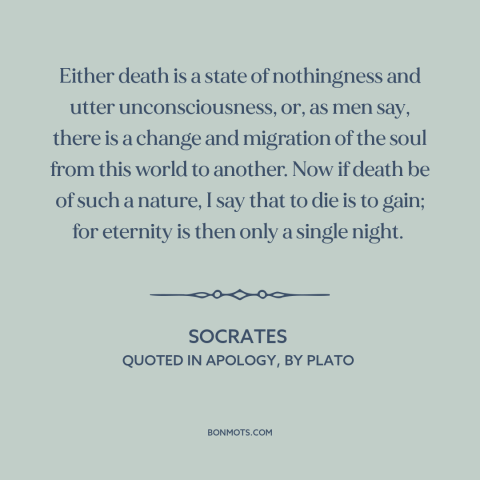Either death is a state of nothingness and utter unconsciousness, or, as men say, there is a change and migration of the soul from this world to another. Now if death be of such a nature, I say that to die is to gain; for eternity is then only a single night.
Authentication Score 2
Original Citation
Plato. Ἀπολογία Σωκράτους [Apology of Socrates]. Speech of legal self-defence which Socrates spoke at his trial for impiety and corruption. 399 BC, Athens, Greece.
Current Citation
Plato. "Apology." Plato: Euthyphro; Apology; Crito; Phaedo, translated by Christopher Emlyn-Jones and William Preddy. Harvard University Press, 2017.



